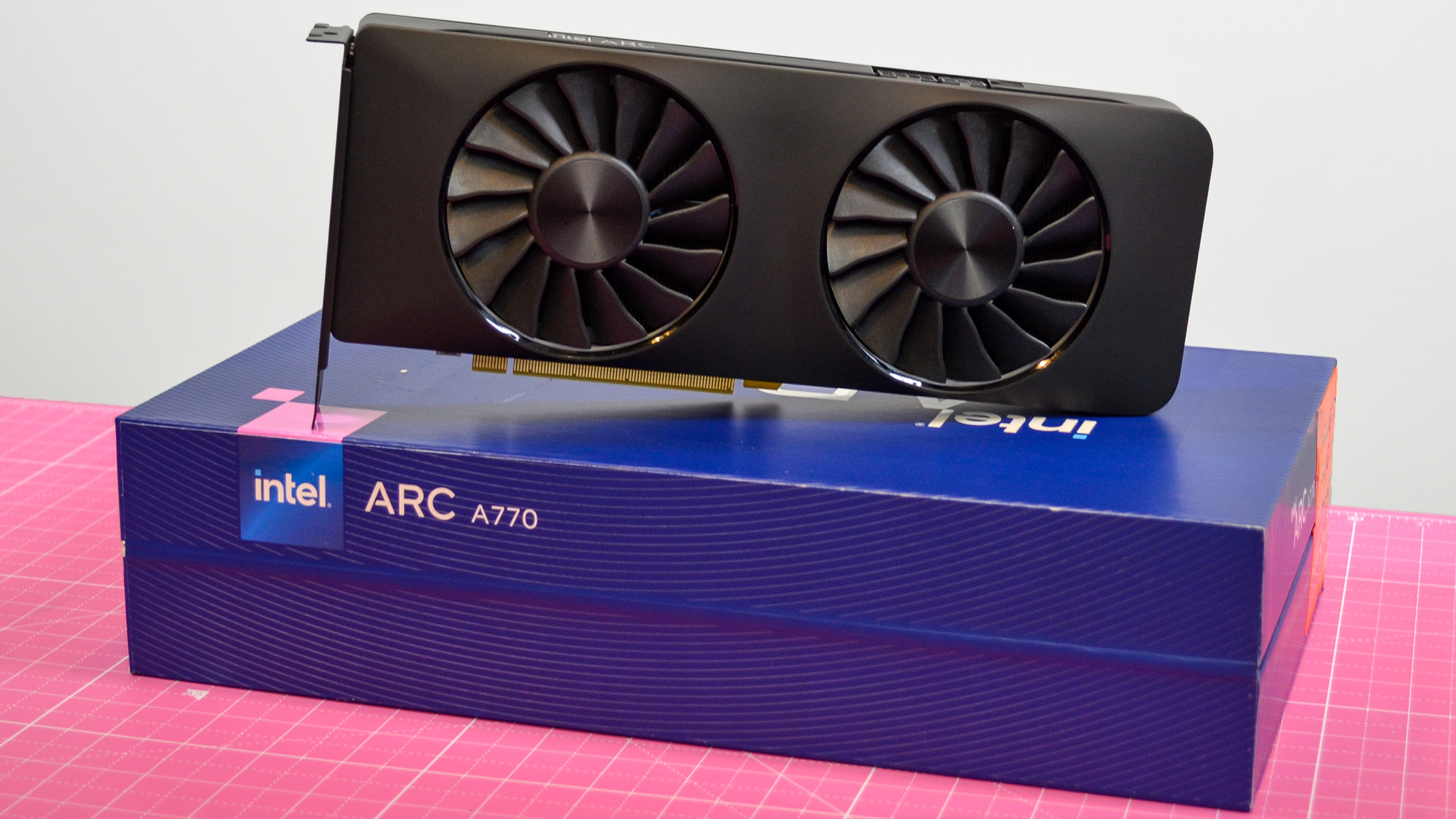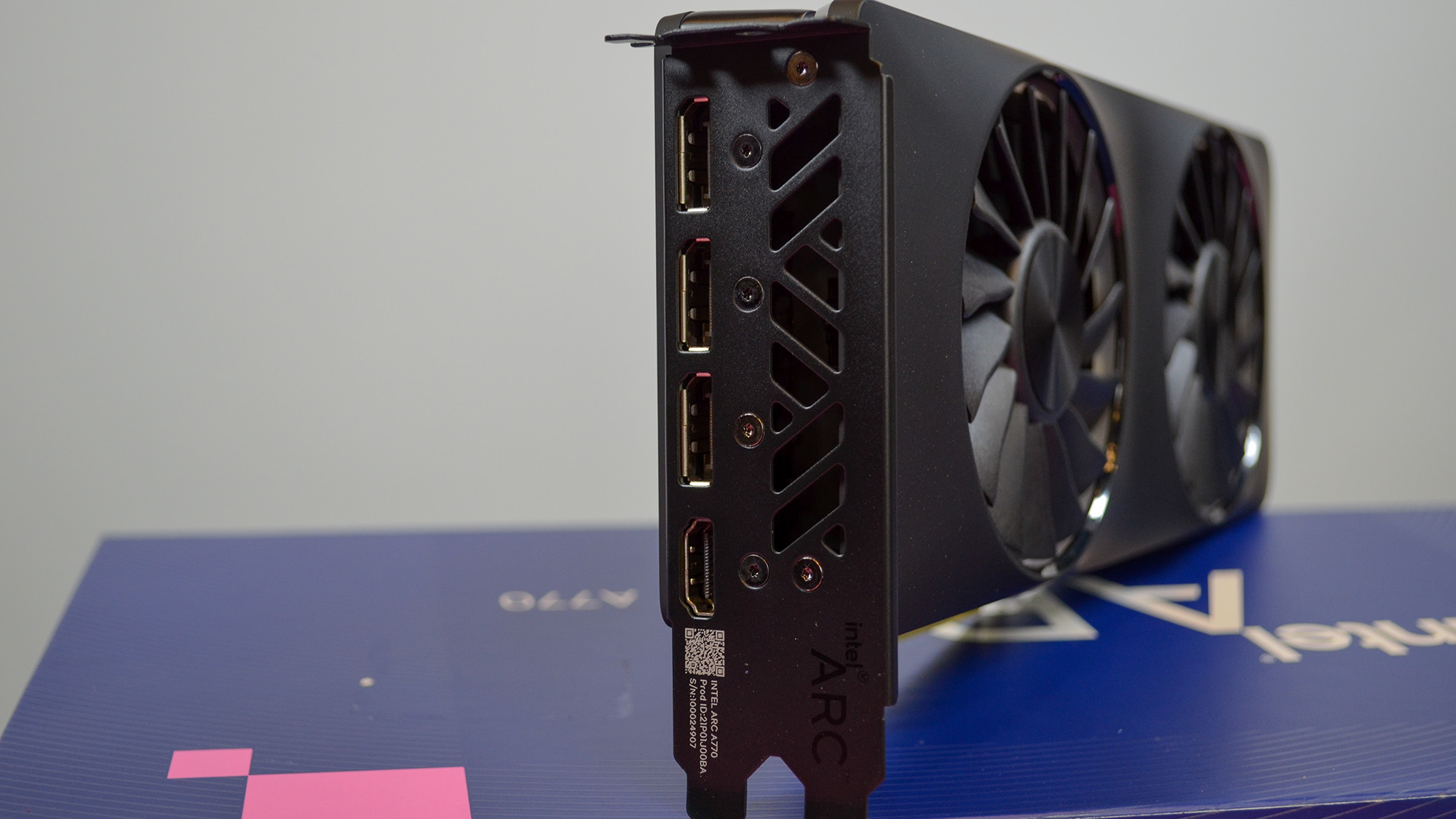Another driver update, another set of huge performance boosts for free, as Intel Arc GPUs keep getting better
Some PC games are almost three times faster now

Intel has again pulled off some big frame rate gains with a new graphics driver, Arc GPU owners will doubtless be pleased to hear – with both discrete and integrated graphics getting considerable benefits.
Intel’s Arc driver version 31.0.101.5379 comes with support for some freshly released games, namely Horizon Forbidden West and the apparently excellent but somewhat controversial Dragon’s Dogma 2 (the divisive points being the microtransactions and performance issues).
Intel also brings in support for the Ray Tracing Update for Diablo IV (and The Legend of the Condor Heroes), but what about those major frame rate boosts?
On desktop Arc graphics cards, compared to the previous driver, we are promised that Detroit: Become Human (on Vulkan) gets an up to 172% average fps uplift on 1440p with Ultra details (and 137% at 1080p – all of these percentages are “up to on average” by the way, which we read as simply an ‘up to’ best-case scenario, correct us if we’re wrong Intel).
Granblue Fantasy: Relink (DX11) is also speeded up massively with an up to 174% boost at 1080p (Ultra), with those being the notably giant strides forward, although there are other big movers here.
That includes the aforementioned Dragon’s Dogma 2 (DX12) which is 36% faster now (at 1080p, High), and Assassin’s Creed Origins (DX11), with Intel delivering a 35% boost here (1080p, Ultra High).
God of War (DX11) is 36% faster (1080p, Ultra) and Conqueror’s Blade (DX11) gains up to 54% (1080p, Highest details).
Get daily insight, inspiration and deals in your inbox
Sign up for breaking news, reviews, opinion, top tech deals, and more.
Fortnite (DX12) and Horizon Forbidden West (DX12) are both 6% quicker, a modest but worthwhile improvement, at 1440p (actually, Fortnite has that 6% boost at 1080p, too).
Finally, Sons of the Forest (DX11) is 9% faster at 1440p (High) and 8% quicker at 1080p (Ultra).
Performance boosts for integrated Arc graphics (in Intel Core Ultra CPUs, aka Meteor Lake chips for laptops) are delivered across many of the same games, with slightly different results. That includes a bigger 117% boost for Assassin’s Creed Origins (1080p, Medium), and there’s an 18% uplift for Dragon’s Dogma 2 as well (1080p, Low).
For the exhaustive list of changes and performance gains check out the full release notes from Intel.

Analysis: Promising for the future – but Battlemage silence is a worry
These are some useful and sizeable boosts for a range of high-profile games, old and new. Intel just keeps pushing forward with these kind of uplifts in driver update after update, which is good to see. In fairness, Team Blue did start with a pretty low bar (initially very wonky drivers) so there was ample room for improvement, but still, credit where credit’s due – those improvements have definitely been made.
While it’s great to see this continued success with performance gains in the Arc drivers, what concerns us is the silence on Battlemage of late. We have high hopes Intel can build on the original Alchemist graphics cards with 2nd-gen models that really challenge AMD and Nvidia at the lower-end of the GPU market, but there’s been a disturbing lack of chatter and leaks around Battlemage of late.
The only whispers coming from the grapevine are predictions that all is not well with Battlemage, and progress is going sluggishly – with the result that Intel’s next-gen GPUs may not arrive until 2025 (not this year as previously predicted).
Still, even if we do have to wait a long time, if Intel gets the hardware right, and driver improvements keep coming through, we could still get some excellent challengers for the budget GPU market eventually. Fingers crossed.
Via Tom’s Hardware
You might also like
Darren is a freelancer writing news and features for TechRadar (and occasionally T3) across a broad range of computing topics including CPUs, GPUs, various other hardware, VPNs, antivirus and more. He has written about tech for the best part of three decades, and writes books in his spare time (his debut novel - 'I Know What You Did Last Supper' - was published by Hachette UK in 2013).